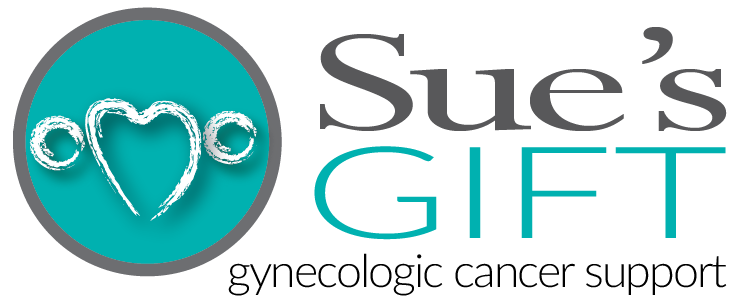
Sue’s Gift Blog
Supportive articles for the newly diagnosed, those currently in treatment, survivors, caregivers, and loved ones. Written by our Patient Services Director, Sherry Martin, a licensed clinical social worker with over 35 years of experience in the field of oncology social work.
I’m Ok—Really
When I was an undergraduate student many years ago, a book entitled I’m Ok—You’re Ok by Thomas A. Harris, M.D., was very popular. The book’s subtitle is “A Practical Guide to Transactional Analysis,” and centers on a method for solving problems in life.
The Song He Sings
I listened to his song for days and days. It was a soothing, beautiful song. I eventually came to know it as a love song.
He came faithfully every day, sitting in the tree, singing his heart out to his love and mate. She was protecting and warming their love children, yet to be born, in the nest they had built together. I was in awe of their equal partnership.
Unexpected Opportunities
You know how you had life planned out...what you wanted and expected? Then, despite all the planning and dreaming, it didn’t turn out exactly how you thought it would. Looking back over my life, expectations, and hopes for the future, many things are different than I thought. And almost without exception, even when I couldn't see the road ahead, much turned out better than I could have envisioned.
The Changing Seasons
I always liked asking participants in the support groups I led, “What is your favorite season of the year?” or “What was your favorite age?” You learn a lot about people with those questions. Most everyone had a preferred season, and some had a preferred age, stating, for example, they “loved being in their 30’s, when the kids were little.” Others said they enjoyed all the seasons and liked their current age.
What Did You Learn?
She told me the story of her grandson’s death. He was five and the favorite of her four grandchildren. It was a tragic accident – too horrifying to recount the details here. She shared those details in my Beginning Again grief group a year after his death. Even though it was many years ago, I’ll never forget her story. And I will never forget her response to his death.
Learning To Live Without Fear
Looking back, I suspect I lived a good portion of my life in chronic fear… fear of not being good enough, fear of failure, fear of disappointing someone, fear of others’ opinions, fear of financial dependency or ruin, fear of being homeless, fear of deep water, and those are the fears that immediately come to mind.
The Manhole
He was walking down the street, oblivious to his surroundings, absorbed in the video on his iPhone. There was no awareness of the uncovered manhole ahead, until he found himself tumbling into semi-darkness, 10-feet underground. Stunned, but coming to his senses, he yelled for someone to come to his aid, to help him out of the deep hole. He heard a voice above him – the voice of a priest. Thank God, he thought. The priest offered a prayer on his behalf, and walked on.
The Stones
Water has always frightened me, probably because I grew up in land-locked Oklahoma with few opportunities to become comfortable swimming or water skiing. In the water, I felt out of my element and scared. It was okay to be “around water” …playing in the lawn sprinkler or splashing in a shallow pool, but being “in the water,” in the deep end of a pool or in a lake or ocean, well, that was a panic attack waiting to happen.
It All Counts
I’ve lost track of the number of times I’ve listened to another’s story of distress, fear, or grief. Each one shared with me that when talking to someone about what they were going through, the typical response went something like this: “Well, let me tell you about…my cancer diagnosis, my cousin’s cancer diagnosis, my ex, my dysfunctional boss, my struggle with depression, my loss, etc., etc…”
Four Rules for Life
This quote has been our immediate family mantra for at least the past 25 years. There are similar versions of this quote, but I was told this particular quote was from the Lakota Sioux. It’s a simple saying that’s concise, clear, and at first glance – easy. But this is one of the most powerful and difficult maxims I’ve come across.
Sitting With Pain
I’ve lost track of the number of times I’ve listened to another’s story of distress, fear, or grief. Each one shared with me that when talking to someone about what they were going through, the typical response went something like this: “Well, let me tell you about…my cancer diagnosis, my cousin’s cancer diagnosis, my ex, my dysfunctional boss, my struggle with depression, my loss, etc., etc.” While I believe friends have good intentions and are trying to be supportive and helpful, the end result is usually the opposite. The person initially sharing her experience consequently doesn’t feel supported or heard and often feels discounted, typically, by a one-upmanship response. (Your experience is obviously worse than mine, so mine doesn’t count.)
Asking
Why is it so hard to ask for what you need? Maybe saying “I need…” feels selfish. The traditional roles of women as nurturers and caregivers have programmed us to consider everyone else’s needs ahead of our own, so needs often go unspoken and unaddressed. That’s not unique to either gender though, as men may have unexpressed needs as well.
About The Author
Sherry Martin, LCSW has served as Patient Services Director at Sue's Gift for the past seven years. A licensed clinical social worker with over 35 years of experience in oncology care, she brings deep expertise and compassion to patients, survivors, and their loved ones.
She is also the author of Beginning Again: Tools for the Journey through Grief a step-by-step guide for grief support group facilitators. Based on a proven model with low attrition rates and overwhelmingly positive participant feedback, the book provides practical tools for those feeling stuck in grief or seeking guidance in their healing journey.
Throughout her career, Sherry has specialized in medical and oncology social work, with experience spanning in-patient hospitals, outpatient cancer centers, hospice, skilled nursing facilities, case management, counseling, program development, educational workshops, and group facilitation. Her work is dedicated to supporting individuals and families through the challenges of cancer, grief, and loss, helping them find resilience, connection, and hope.













